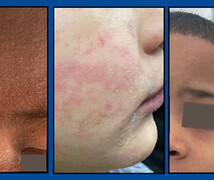Women whose labors are induced or helped along may have an increased risk of bearing children with autism, especially if the baby is male, according to an analysis by researchers at Duke Health and the University of Michigan.
The findings do not prove cause and effect but suggest the need for more research, particularly as inducing labor (stimulating contractions before the onset of spontaneous labor) and methods to increase the strength, duration, or frequency of contraction during labor have been used more frequently in recent years.
In this study, the researchers looked at records of all births in North Carolina over an eight-year period and matched 625,042 births with corresponding public school records, which indicated whether children were diagnosed with autism. The findings suggest that among male children, labor that was both induced and augmented was associated with a 35% higher risk of autism, compared with labor that received neither treatment.
Moving deliveries along has benefited women who have health conditions that pose a risk to them and their unborn children. Inducing labor and augmenting labor have been shown to prevent complications, including stillbirth.
Learn more by reading our press release, Inducing and Augmenting Labor May be Associated with Increased Risk of Autism.





